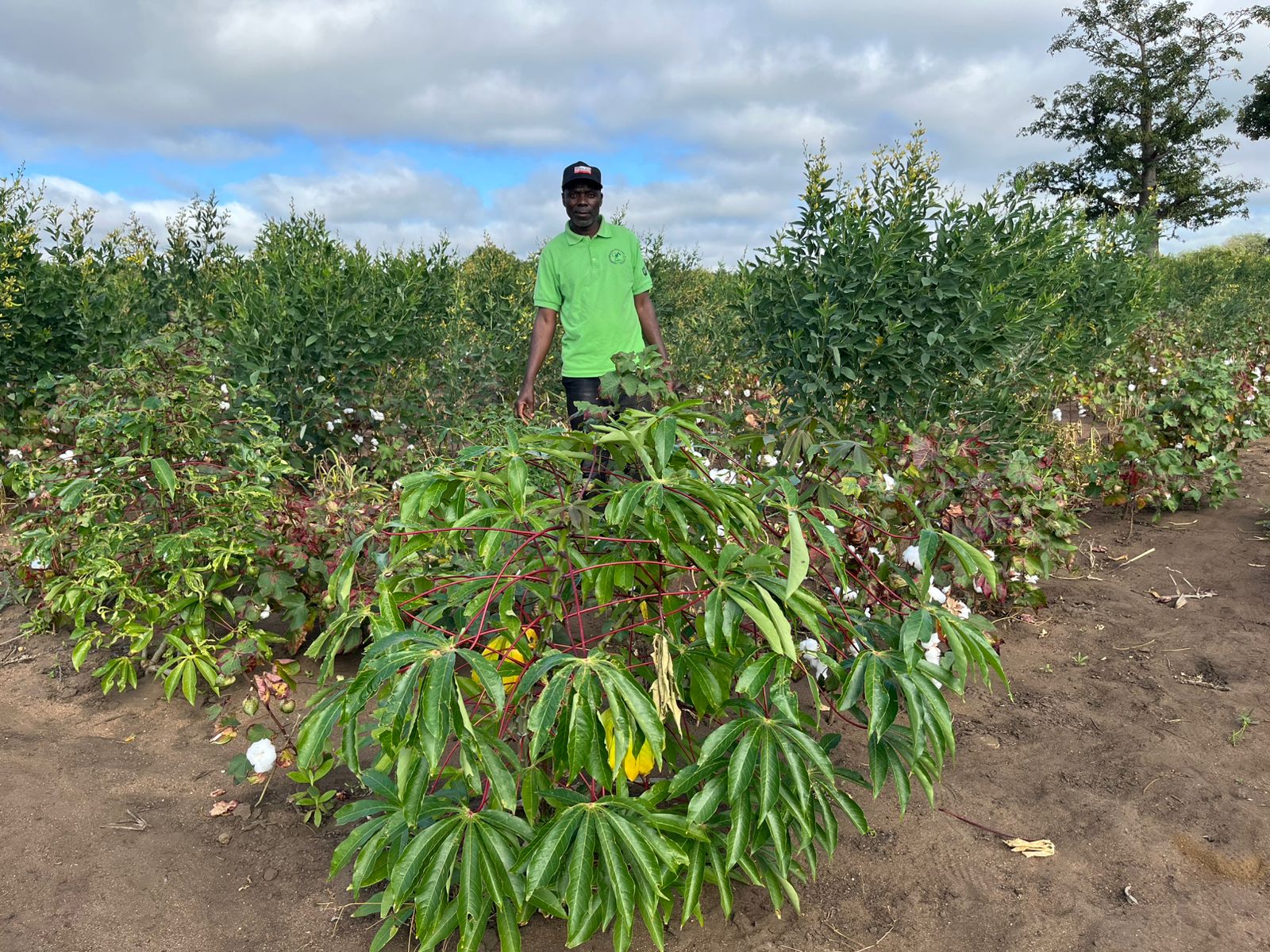
South-South cooperation as a strategy to fight hunger and the example of Mozambique was the theme that the WFP Centre of Excellence against Hunger in Brazil took to the webinar ‘Tackling global hunger: perspectives and challenges for 2030’, held on 15 July by Fiocruz.
The event is part of the “Advanced Seminars on Global Health and Health Diplomacy” series and brings together national and international experts and authorities to discuss solutions to the world’s growing food insecurity.
Eliene Souza, a nutritionist from the Centre of Excellence’s projects unit, gave a picture of how the World Food Programme works around the world and in Brazil, and gave as an example the results of the Beyond Cotton Project in Mozambique.
“This project was designed to enable small, food-insecure cotton farmers to produce not only cotton, but also food, in a consortium.” She emphasized that in Mozambique there was integrated action by partners in the fight against hunger and in South-South cooperation with sustainability in mind.
“Brazilian universities have contributed to identifying alternatives in the local agricultural production base, with associations and co-operatives. Among the results were the development of bio-inputs for pest control, the construction of vegetable gardens and productive backyards,” he says. The project also promoted an increase in cotton production and the sale of food, which strengthened the communities economically.
Denise Coitinho, senior advisor for nutrition and food systems at UN Nutrition, gave a presentation emphasizing the role of diplomacy as a means of promoting dialogue to build shared solutions between nations. ‘In the UN system, we are inspired by diplomatic tools to focus on combating malnutrition and food and nutrition insecurity.’
She emphasized the UN’s multilateral instruments for tackling multiple global crises. “Today we have domestic food price inflation all over the world, which has a direct impact on hunger. This, combined with chronic poverty, wars, institutional weaknesses and environmental and climate degradation around the world, creates vulnerability in food systems.”
She shared a series of multisectoral strategic actions to face this scenario and gave examples of recent joint achievements. ‘We are looking for effectiveness in the way we support countries, and we are looking for adaptability in the current global scenario of geopolitical tensions and financial constraints for those working in emergencies,’ she concluded.
Elisabetta Recine. President of the National Council for Food and Nutrition Security (CONSEA) and member of the UN Committee on Food Security, spoke about the role of civil society and academia in the fight against hunger, highlighting the challenges to be faced.
“We see evidence of progress in policies, but the food and nutrition security agenda in Brazil faces challenges that are evident in our monitoring. Commitments are not realized if there is no political agenda. The human right to adequate food is emptied if it exists merely as a mention at the beginning of documents.”
She emphasized that we are experiencing a fragmentation of global governance. “Multilateralism needs to be refunded and revalued in order to tackle the major global challenges, especially in the face of the climate change scenario we are experiencing,” she said.
Denise Oliveira e Silva, health worker and coordinator of the Brazilian Food Habits Observatory at Fiocruz Brasília, spoke about the importance of public policies in the fight against hunger, especially looking at the territory and the logic imposed by capitalism.
“Until recently, we had a concept of hunger, which has now evolved and been expanded. Today, we talk about food systems. The relationship we have with the soil and food production has also evolved, today in smaller spaces. We have included the issue of gender in this discussion, because today the preparation of meals is no longer exclusively done by women in the domestic space. The issue of good food has also evolved, because it is no longer calculated in terms of calories and now takes into account the nutritional factor.”
With all these structural changes in society, she warns that health is directly affected by the current model of food production and consumption, which favours ultra-processed foods. “I believe that the way out lies in traditional societies, in their habits and values. This model is sustainable, and this needs to be shared with society.”
Moderated by Eduardo Nilson, from Fiocruz Brasília, the seminar pointed out that eradicating hunger by 2030 requires integrated approaches, ranging from emergency actions to international cooperation models articulated between countries of the Global South.
The full text of the event, in Portuguese, English and Spanish, is available on the official Fiocruz channel.




